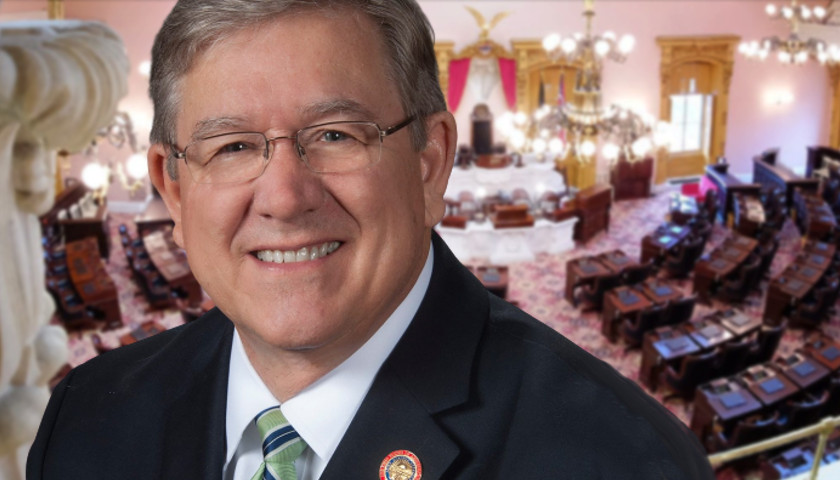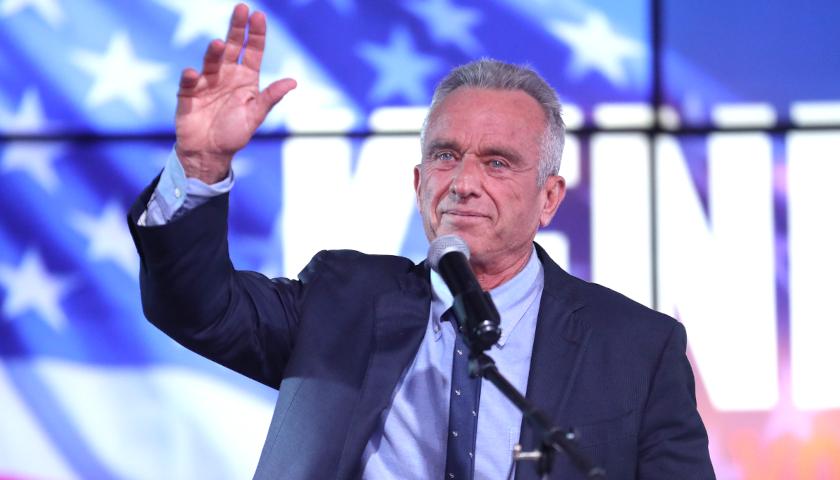Speaker of the House Bob Cupp (R-Lima) was voted into the Speaker role by the Republican Caucus.
The Speaker seat was open after former Speaker Larry Householder (R-Glenford) was relieved of his role following an FBI criminal complaint.
Before Speaker Cupp ascended to the top role in the House, he had to battle Representative Jim Butler (R-Dayton) for the spot.
Cupp and Butler lobbied for votes from House republicans before the group cast votes for the new Speaker. The caucus rules required 31 votes in order for one of the candidates to take over the Speaker seat.
The first vote returned a 30-29 result, in favor of Cupp. One republican lawmaker was on vacation and would have, according to sources, voted for Butler – which would have tied the vote at 30.
Given the optics on the situation that brought the house republicans to this point – former Speaker Larry Householder being charged with criminal bribery for his involvement in HB6 and his own election to the Speaker seat – the party felt it more imperative to quickly replace the dislodged leader than to follow the replacement procedures, according to one source.
By a simple – if thin – majority vote, Bob Cupp became speaker.
On Monday Speaker Cupp stepped into the legislative limelight when members of the House released 10 articles of impeachment.
Representative John Becker (R- Union Township, Clermont County) posted the articles of impeachment to the website https://impeachdewine.webs.com/ and released a statement to the press in which he wrote:
Governor DeWine has violated the Ohio and United States Constitutions, as well as multiple sections of the Ohio Revised Code. Among his abuses of power, he meddled in the conduct of a presidential primary election and arbitrarily closed certain businesses, while allowing other businesses to remain open. He later instituted a statewide mask mandate, implementing that requirement as a condition of employment, making Ohio a hostile work environment.
Representative Becker was joined by Representatives Nino Vitale (R-Urbana), Candice Keller (R-Middletown), and Paul Zeltwanger (R-Mason) as co-sponsors.
In a phone interview with The Ohio Star Becker said: “this is all about the people. Are the votes there to pass it now? No. If people want to make this happen, they can contact their Reps. It’s up to public opinion.”
Speaker Cupp’s predecessor was seen as a thorn in the Governor’s side – at least in words. In one of his final efforts as Speaker, Householder whipped votes to a bill that limited penalties for COVID order violations and limited the power of the Ohio Department of Health during a healthcare emergency. At one point Householder was even quoted as saying to Senate President Obhof “[he] needs to grow a pair” referencing the senate leaders acquiescence to the Governor’s agenda.
From the get-go Ohioans who supported Householder, largely detractors of DeWine’s COVID crisis management, had a beef with Speaker Cupp – he was seen as a DeWine man, a rubber-stamper.
Articles of Impeachment are a microscope for many to examine Speaker Cupp and his legislative propensities.
One strategy laid out on Monday called for Speaker Cupp to embrace the articles of impeachment and urge all GOP reps – even those that don’t want to go as far as removal – to vote FOR articles.
The logic: the process would push the matter to a trial (which would occur in the Senate) and at least bring some sunlight to the decisions made behind the scenes with no public transparency – decisions masked by HB197 that the Governor’s administration and the Ohio Department of Health have used to temporarily deny requests for information ranging from the math behind their epidemiologic models to their contract agreements with companies such as Partners in Health.
On the contrary, Speaker Cupp disavowed the impeachment initiative:
Even serious policy disagreements do not rise to the level of impeachment under our constitution…legitimate debate and disagreement is occurring over the scope and breadth of some of the governor’s orders issued through the health department. I will continue to raise my concerns and disagreements and those of House members with the governor. However, informed dialogue and the law-making process are the best way to resolve these issues.
Policy disagreements mount over what began as a plea from the Governor for Ohioans to be locked out of work, business and normal life on the hope to save lives has turned into almost 170 days of mandates, orders and disruption that have produced serious consequences.
- One survey indicated that 50% of Ohio’s restaurants could close permanently as a result of smothering COVID policies
- The CDC has indicated 25.5% of 18-year-olds had considered suicide in the past 30 days (data from June 24 – June 30)
- 2/3 of high school athletes surveyed by the University of Wisconsin exhibited depression at levels that would require medical intervention due the cancellation of sports.
- The State of Ohio slashed $750,000,000 from its budget and turned to the federal government for a $3.2B loan after the state’s unemployment fund went broke
- The Star interviewed a medical doctor with practices in Cuyahoga County and Lorain County, Ohio that said 75% of the adult patients treated exhibited anxiety and depression at levels requiring medical intervention
Furthermore, since May at least three Ohio judges have ruled that state orders are arbitrary, unconstitutional and call into question the validity of the state of emergency that gives the orders and the Governor’s expanded powers credence.
– – –
Jack Windsor is Managing Editor and an Investigative Reporter at The Ohio Star. Windsor is also an Investigative Reporter at WMFD-TV. Follow Jack on Twitter. Email tips to [email protected].





